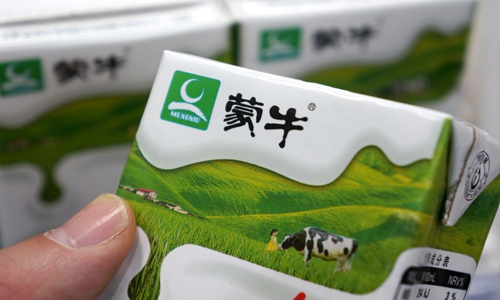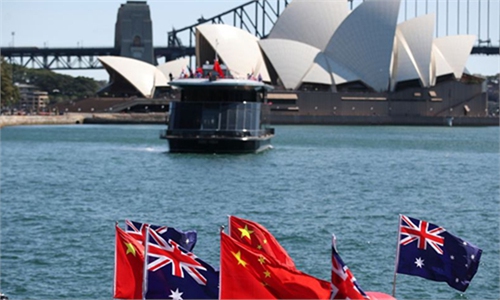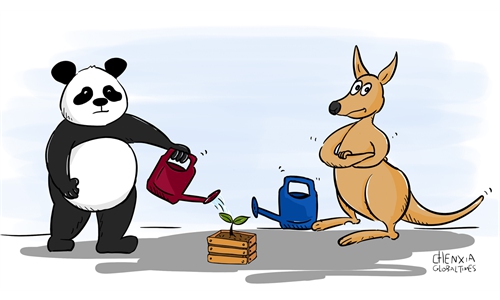Blocking Mengniu Dairy deal further sabotages Australian interests: experts
Blocking Mengniu deal hurts Australian interests

Mengniu Photo: cnsphoto
Australia's attempt to block commercial deals between Chinese and Australian dairy companies is an indication of Australian menace, and it will put further pressure on the already strained bilateral relationship, experts say. It might also curb the possibility of future cooperation that Australia could benefit from.
Chinese dairy giant Mengniu Dairy plans to acquire some of Australia's biggest dairy brands, including Lion Dairy & Drinks and infant formula maker Bellamy's. The deals are facing pressure from Australian Treasurer Josh Frydenberg, who was recently granted last resort power to veto a deal, according to media reports.
Liu Qing, director of the department for Asia-Pacific security and cooperation at the China Institute of International Studies, said that the case is just another provocation by the Australian side, which could result in the rope around its neck being tightened by a notch.
Liu noted that a very imbalanced trade and investment relationship, and blatant discrimination by the Australian side, has caused displeasure in the Chinese business community.
Liu predicts that Chinese investment in Australia this year will hit a new low.
In June, a report by KPMG and the University of Sydney showed that Chinese investment in Australia in US dollar terms fell 62.2 percent during 2018-19 to $2.4 billion.
"Now that a mutually beneficial deal that has nothing to do with national security may get vetoed by the Australian government, the situation could serve as an impetus for the Chinese side to rethink the trade relationship," Liu told the Global Times on Monday.
Liu said Australia should do more positive things that are conducive to the development of bilateral ties, which have gone into deep freeze since the start of the Morrison administration.
Australia was one of the first nations to turn against Chinese technology giants, when its government blacklisted both Huawei and ZTE from its 5G network in 2018, citing security concerns.
On August 18, China launched an anti-dumping investigation into Australian wine imports. The Chinese market is Australia's biggest wine export destination with a total of A$1.1 billion ($791.17 million) of sales in 2019. Earlier this year, China announced tariffs on Australian barley and the suspension of some Australian beef imports.
In June, Chinese authorities advised students against going to Australia, citing racial discrimination concerns.
Song Wei, associate research fellow at the Chinese Academy of International Trade and Economic Cooperation, told the Global Times on Monday that Australia has upgraded its military alliance in the Indian Ocean with the US during the Morrison government.
"Given the rising tension, Chinese investment in the mineral, energy, oil and gas, and agriculture sectors faces increasing risks," Song told the Global Times.
However, despite headwinds in the bilateral relationship, China and Australia are far from waging a trade war, Liu said, and measures taken so far are still technically based on procedural fairness.
The two countries could engage in positive dialogue such as cooperating in the development of third markets and in sectors including climate change, disaster management and clean energy, Song added.
"China and Australia could explore third-market cooperation in Oceania under the Belt and Road Initiative," Song said.


